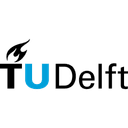Learn to apply Open Science principles to increase your research visibility and impact in this 6-week course.
Learn to apply Open Science principles to increase your research visibility and impact in this 6-week course.
Dive into the world of Open Science and discover how to make your research more visible, effective, and impactful. This comprehensive course covers the key principles of Open Science, including Open Data management, Open Access publishing, and FAIR software practices. You'll learn practical strategies for sharing research data and publications openly, while addressing potential barriers and ethical considerations. The course also explores cutting-edge topics like citizen science and the use of social media in research communication. Through case studies and hands-on exercises, you'll develop skills to implement Open Science practices in your daily research routines. By the end of the course, you'll be equipped to navigate the evolving landscape of Open Science policies and leverage these principles to enhance your research career.
Instructors:
English
English
What you'll learn
Understand the key concepts, objectives, and benefits of Open Science
Develop effective strategies for managing and sharing research data openly
Navigate Open Access publishing options and maximize research visibility
Apply FAIR principles to research software development
Implement citizen science approaches in research projects
Create a personalized Open Science strategy for increased research impact
Skills you'll gain
This course includes:
PreRecorded video
Graded assignments, exams
Access on Mobile, Tablet, Desktop
Limited Access access
Shareable certificate
Closed caption
Get a Completion Certificate
Share your certificate with prospective employers and your professional network on LinkedIn.
Created by
Provided by

Top companies offer this course to their employees
Top companies provide this course to enhance their employees' skills, ensuring they excel in handling complex projects and drive organizational success.





There are 4 modules in this course
This course provides a comprehensive introduction to Open Science principles and practices. It covers four main areas: 1) Introduction to Open Science concepts and benefits, 2) Effective research data management and sharing, 3) Open Access publishing strategies, and 4) Advanced topics including research visibility, FAIR software practices, and citizen science. Throughout the course, participants will engage with case studies, practical exercises, and discussions to apply Open Science principles to their own research contexts. The curriculum emphasizes hands-on skills development, including creating data management plans, evaluating Open Access publishing options, and developing research communication strategies.
Introduction to Open Science
Module 1
Research Data Management
Module 2
Publishing Open Access
Module 3
Elective Topics
Module 4
Fee Structure
Instructors

1 Course
Expert in Open Science and Academic Skills Education
Lisanne Walma serves as an open science and academic skills teacher at TU Delft, bringing a unique interdisciplinary background combining pharmacy and American studies from Utrecht University. Her academic journey includes a PhD from Utrecht University (2020), where she researched Dutch historical debates on morphine in digitized newspapers, bridging her interests in history and medicine. After her doctorate, she worked as a postdoctoral researcher at the Open University of the Netherlands, contributing to the HERA-funded Governing the Narcotic City project, which created an open-access archive of European drug cultures. Her current role at TU Delft focuses on developing and teaching information literacy and open science courses for students and PhD candidates, drawing on her experience in interdisciplinary education and research methodology. Her expertise spans academic writing, literature review development, and open science practices, reflecting her commitment to advancing scholarly communication and research skills.

2 Courses
Pioneer in Open Data Research and Governance
Anneke Zuiderwijk serves as Associate Professor in Open Data at TU Delft's Faculty of Technology, Policy and Management, where she has worked since 2011. Her research focuses on developing theories and infrastructures that incentivize open data sharing among governments, researchers, companies, and citizens. She began her career at the Dutch Ministry of Justice and Security, where she gained practical insight into judicial data sharing challenges. After completing her PhD with distinction under Professor Marijn Janssen at TU Delft, she worked on the EU-funded VRE4EIC project to develop virtual research environments for multidisciplinary collaboration. Her most cited work "Benefits, adoption barriers and myths of open data and open government" (2012) has significantly influenced the field. She currently serves as Chief Editor of the Journal of Electronic Democracy (JeDEM) and has co-authored influential frameworks for comparing open data policies and their implementation. Her teaching contributions include developing professional education courses on Open Data Governance and MOOCs on Open Science. Through her research and leadership, she continues to advance understanding of open data ecosystems while addressing barriers to data sharing across sectors.
Testimonials
Testimonials and success stories are a testament to the quality of this program and its impact on your career and learning journey. Be the first to help others make an informed decision by sharing your review of the course.
Frequently asked questions
Below are some of the most commonly asked questions about this course. We aim to provide clear and concise answers to help you better understand the course content, structure, and any other relevant information. If you have any additional questions or if your question is not listed here, please don't hesitate to reach out to our support team for further assistance.



